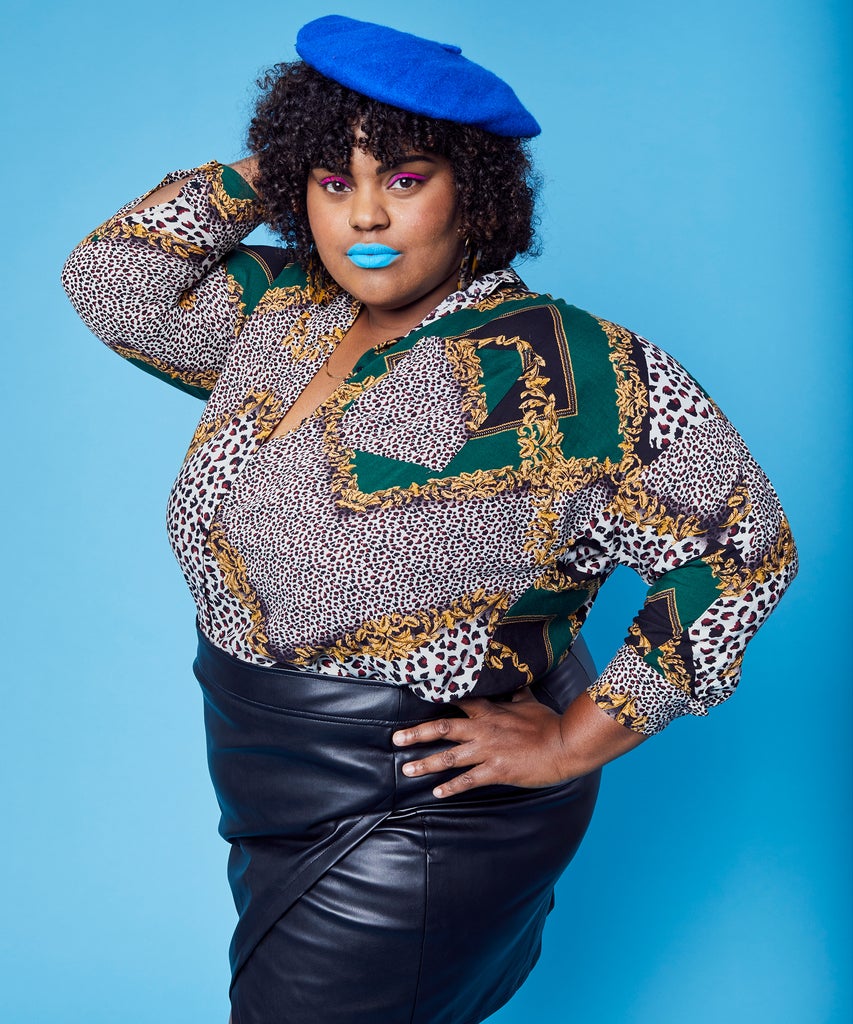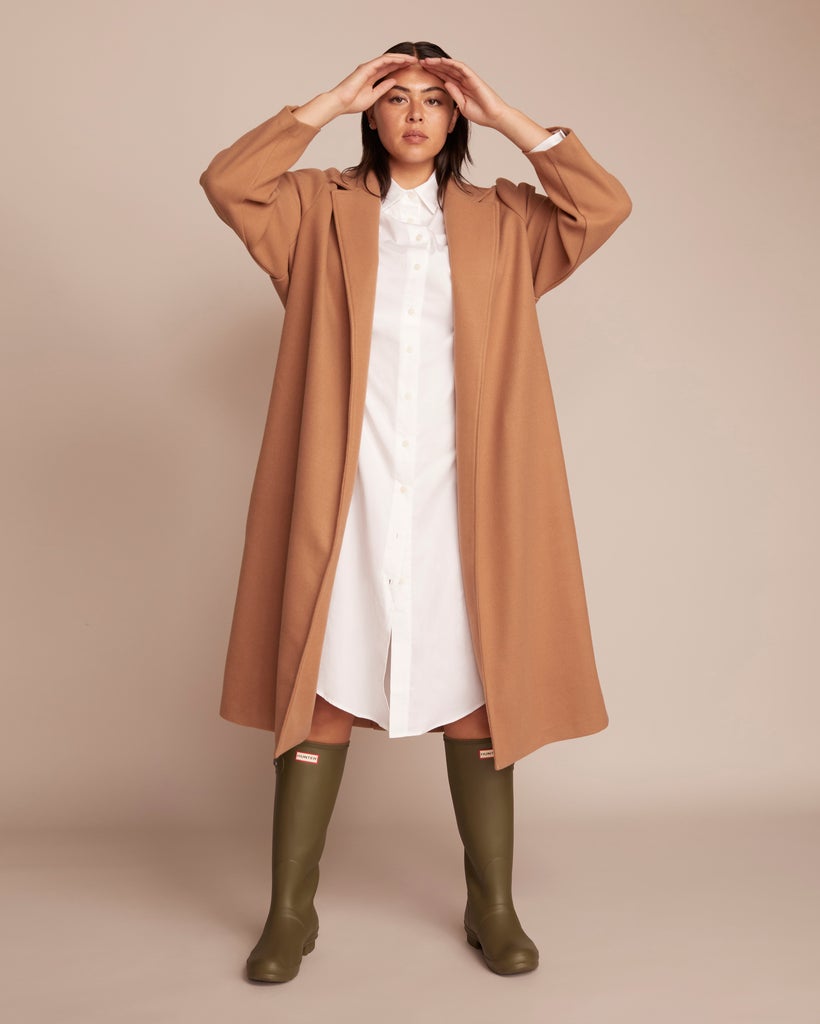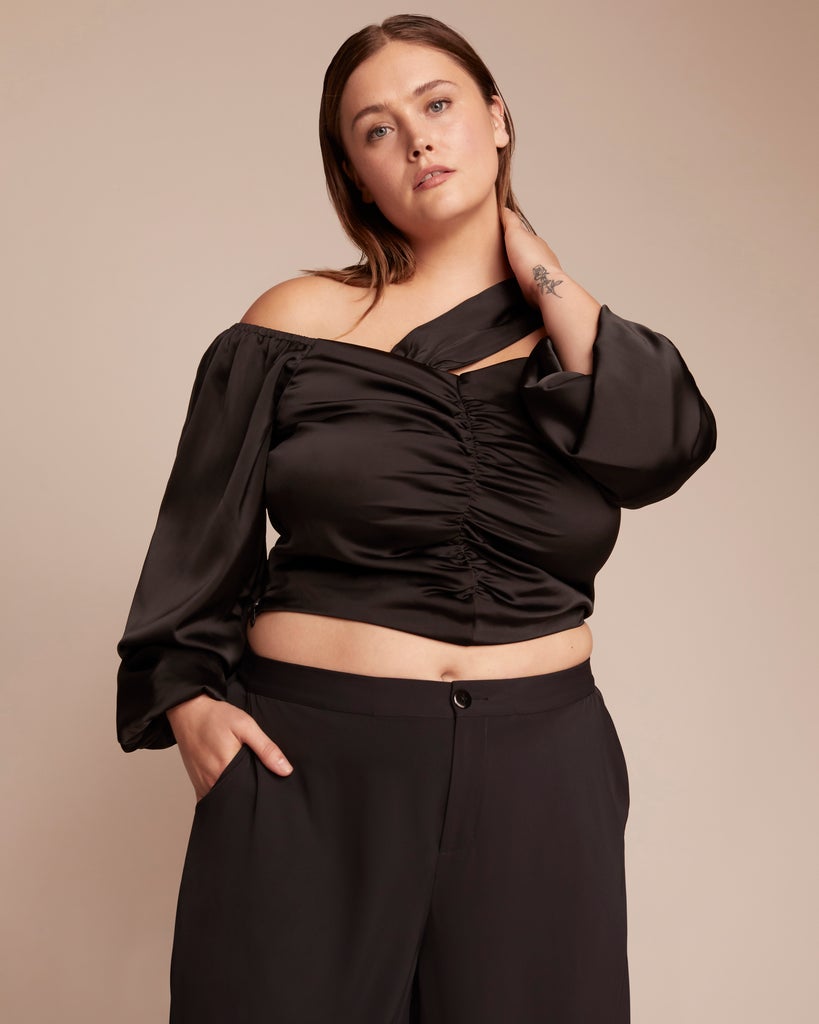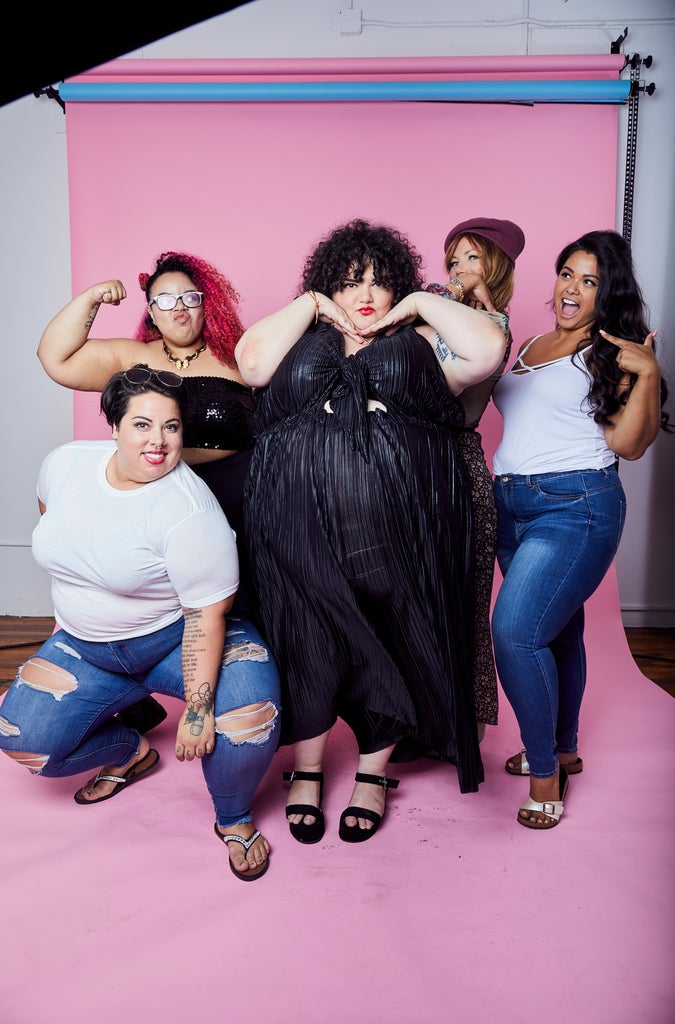
Last month, The RealReal announced a partnership with the luxury plus-size retailer 11 Honoré to increase the resale site’s size-inclusive offering. The newly launched initiative offers customers who consign items over a size XL on The RealReal a 30% discount on any transaction with 11 Honoré. “We’ve definitely been aware of the lack of a plus-size offering in the luxury secondhand space and have been actively looking for solutions to the challenges because traditionally the luxury fashion space is not very inclusive,” says Noelle Sciacca, senior fashion lead at The RealReal.
This partnership indeed highlights a significant issue in the secondhand shopping space. While resale marketplaces, from Depop to Vestiaire, are booming in popularity and sales, plus-size customers are getting left out. This lack of size-inclusive preloved clothing pushes many to continue to rely on fast fashion brands, often leaving them to face criticism for opting out of the more environmentally-conscious shopping method.
While The RealReal’s partnership with 11 Honoré opens a new chapter for the luxury resale market, other vintage sellers have not been sitting idle waiting for the door to open. Instead, they’ve created their own spaces, focusing on size-inclusive shopping experiences. Take, for example, The Plus Bus, a secondhand brick-and-mortar in Los Angeles, founded by Jen Wilder and Marcy Guevara-Prete, and New York’s Plus BKLYN, which exclusively offers secondhand clothes above a size 12, founded by Alexis Krase.


Both opened in response to the lack of secondhand and vintage plus-size clothing. According to Krase, much like the rest of the fashion industry, thrift and vintage shops have capitalized on excluding plus-size shoppers. “Fat people have existed since the beginning of time, and they’ve had to wear clothes,” says Krase. “When it comes to vintage, because fashion has been exclusionary and because there were not as many mainstream options available that can stand the test of time, I think that’s a major factor of why you don’t see as much available.”
What’s more, some of the sources interviewed for the story said that when they’ve tried to consign their clothes at other thrift stores in the past, they’ve been told “those sizes don’t do as well for us.” When this narrative is perpetuated, it’s easy to see why many secondhand stores don’t offer a wide range of sizes.
Krase has actively tried to change that. As the only secondhand store centered around plus-size fashion in New York City, Plus BKLYN is a safe space for plus-size shoppers that don’t feel welcome in the city’s rich vintage scene. “If you’re a straight-size person, you can walk down [Brooklyn’s] Bedford Avenue and throw a rock at 20 vintage stores,” says Krase. “Radical self-acceptance is encompassed in what we espouse as a business for our community because fat people have been on the fringes of fashion for so long.”
And much of that work is inspired by her own experiences with thrifting, which she says allowed her to embrace fashion as a plus-size kid. “The clothes that were in [retail] stores were not my style, or [they were] matronly,” she says. “I fell in love with thrifting because I [could] make stuff my own.” In turn, Krase wanted to create a space for other plus-size shoppers to do the same.
“You would be shocked at how often we have people come into our store and cry, out of happiness coming out of the dressing room,” says Krase. “Yet, it shouldn’t be so novel for people to feel like they can find options.”
Alexis Krase
Wilder and Guevara-Prete had a similar vision for The Plus Bus, prioritizing community when they opened their business in 2016. “Because the community has been marginalized and our clothing has been so difficult to get, we were really, really focused on having a place where you could physically touch and try on the clothes,” says Guevara-Prete.
She says that while plus-size clothing has always existed, it’s still a challenge for them to source size-inclusive vintage garments. “Because those clothes were not valued and plus-size people were told to not wear certain things, there’s almost a gap in the history of vintage fashion,” she says. Krase echoes this: “Because the fashion industry has been [historically] exclusionary, mainstream, well-made designer options, things that typically stand the test of time, are not as accessible.”
Because of this, their spaces have become go-to destinations for plus-size shoppers eager to sort through racks of clothing that embody the kind of mindset not commonly celebrated inside the fashion industry. “You would be shocked at how often we have people come into our store and cry out of happiness coming out of the dressing room,” says Krase. “Yet, it shouldn’t be so novel for people to feel like they can find options.”

This is where partnerships like The RealReal’s recent venture with 11 Honoré come into play. According to Sciacca, one of the biggest issues that The RealReal has faced in expanding its sizing is the lack of size inclusivity in luxury fashion at all, which is why they’ve focused on partnering with brands that cater to plus-size customers, like 11 Honoré, in order to “put more pieces into the secondhand market.” And the demand is real: Sciacca says that as the site has expanded its range, pieces above an XL are the fastest selling with a 33% uptick on those sizes in the past year. So much so, that when the partnership with 11 Honoré went live, The RealReal’s team noticed most of the pieces were put on hold as soon as they were made available.
This is a move that other secondhand platforms are also exploring, according to Krase, who has been approached by other companies for similar partnerships that have yet to materialize. Still, there is a sense of mistrust: “I appreciate that those efforts are being made, but I think it’s kind of piecemeal and it’s slow, and I think the options are still so few and far between that it’s going to take time and more and more Herculean effort to grow,” she says.
Much like they have in the past, Krase and Guevara-Prete are not waiting for the fashion industry’s acceptance. Instead, they keep forging new paths for their communities, opting to focus on fostering safe spaces to play with fashion, even for those who still don’t trust the secondhand market. “The best thing I can recommend is to find a place that feels safe for you and dip your toe in the water,” says Krase.
Like what you see? How about some more R29 goodness, right here?
Good American Is A Go-To For Plus-Size Denim
A Guide To Plus-Size Retailers That Do It Right
Size-Inclusive Intimates Can Change Everything
from Refinery29 https://ift.tt/RnsWPF9
via IFTTT
